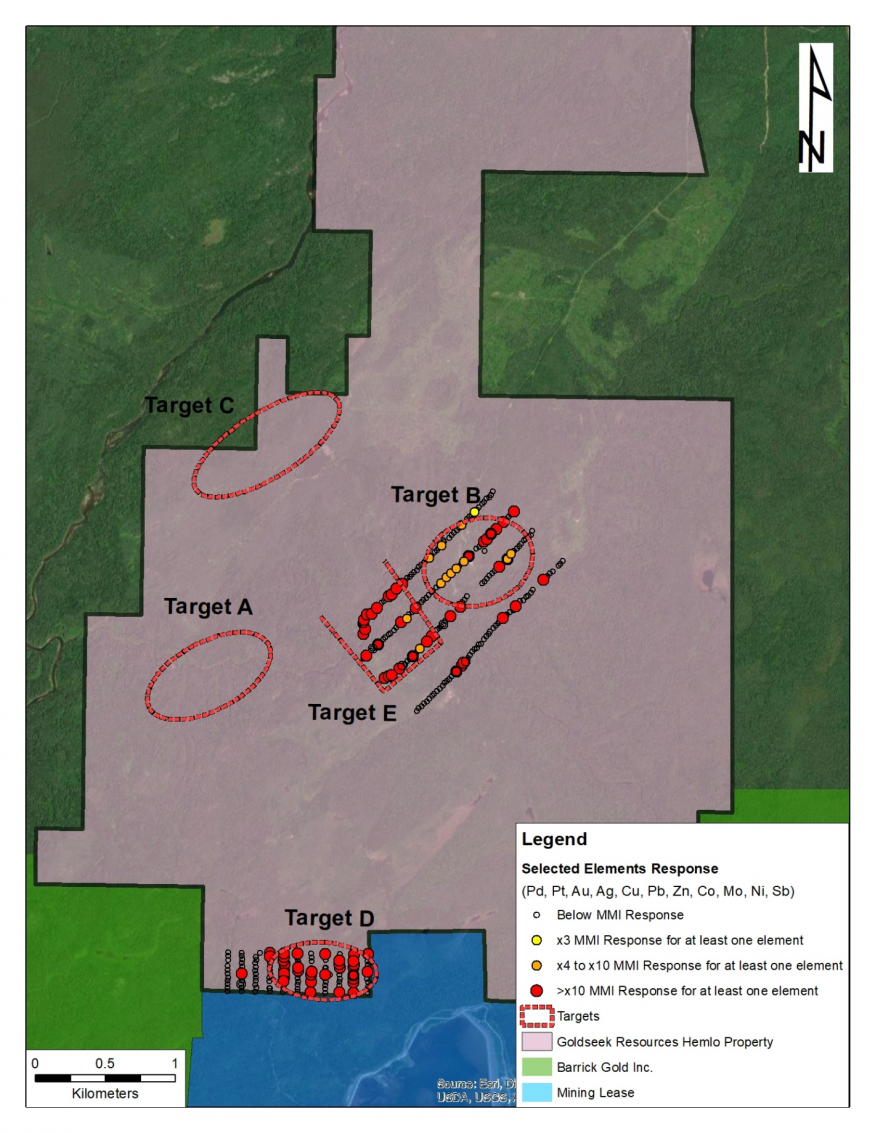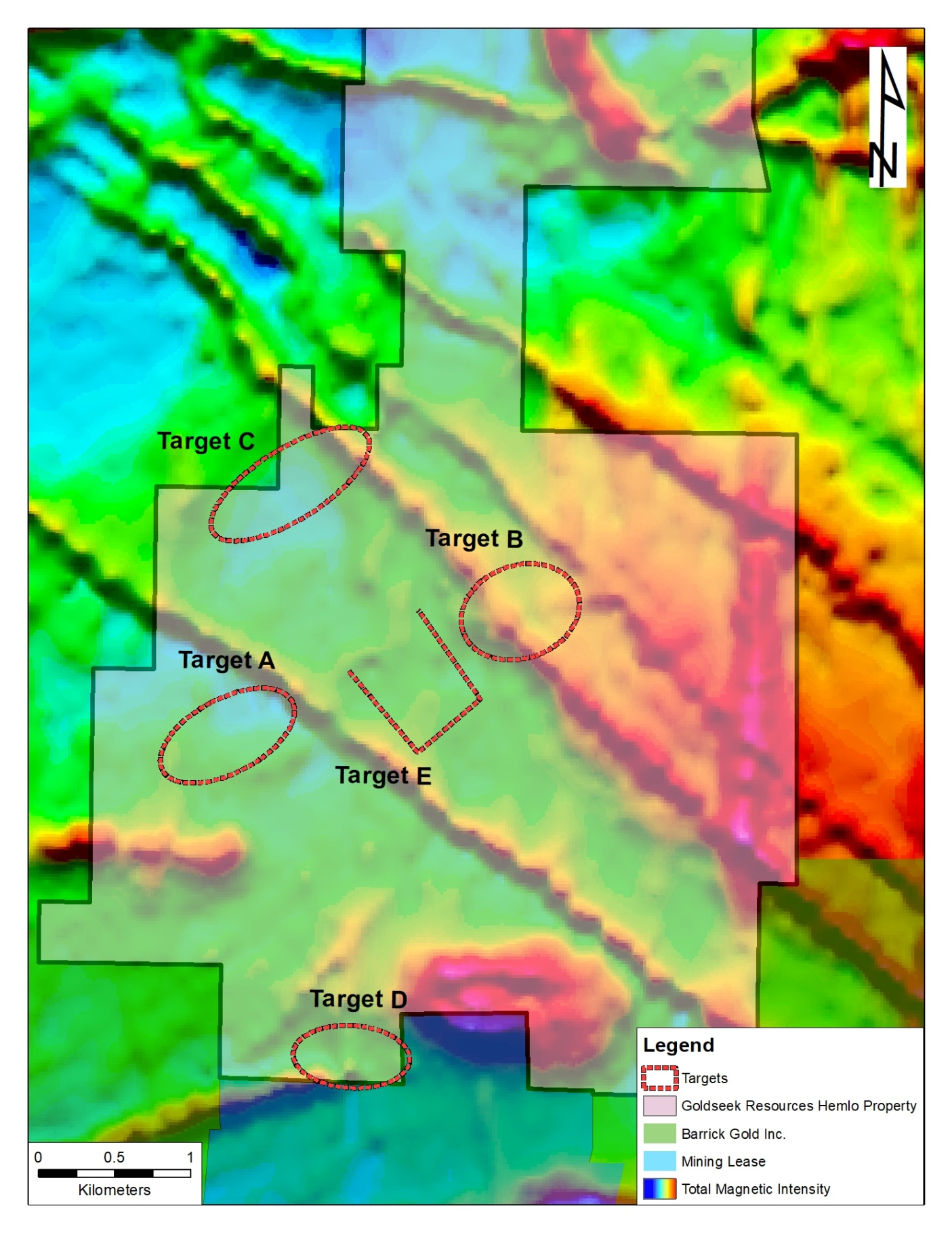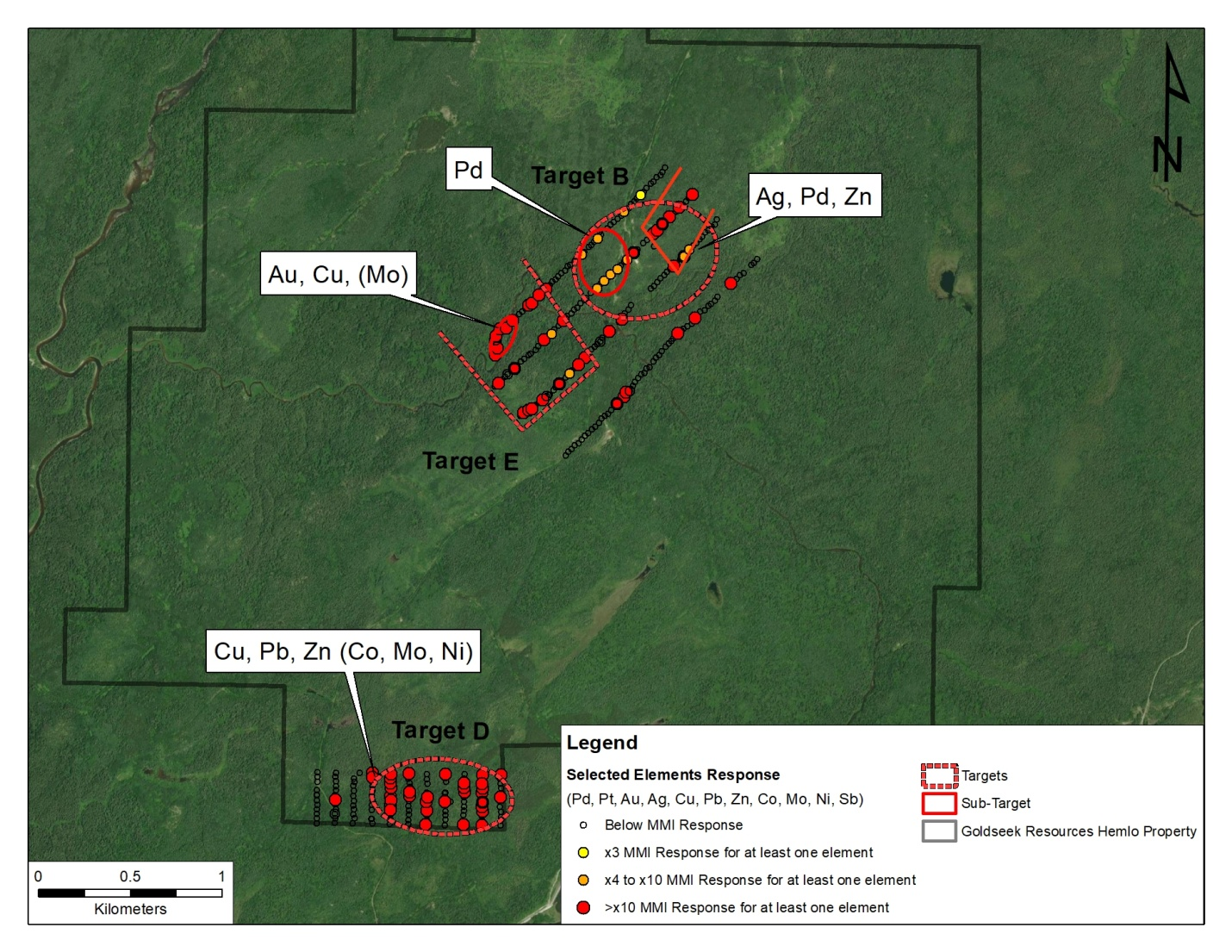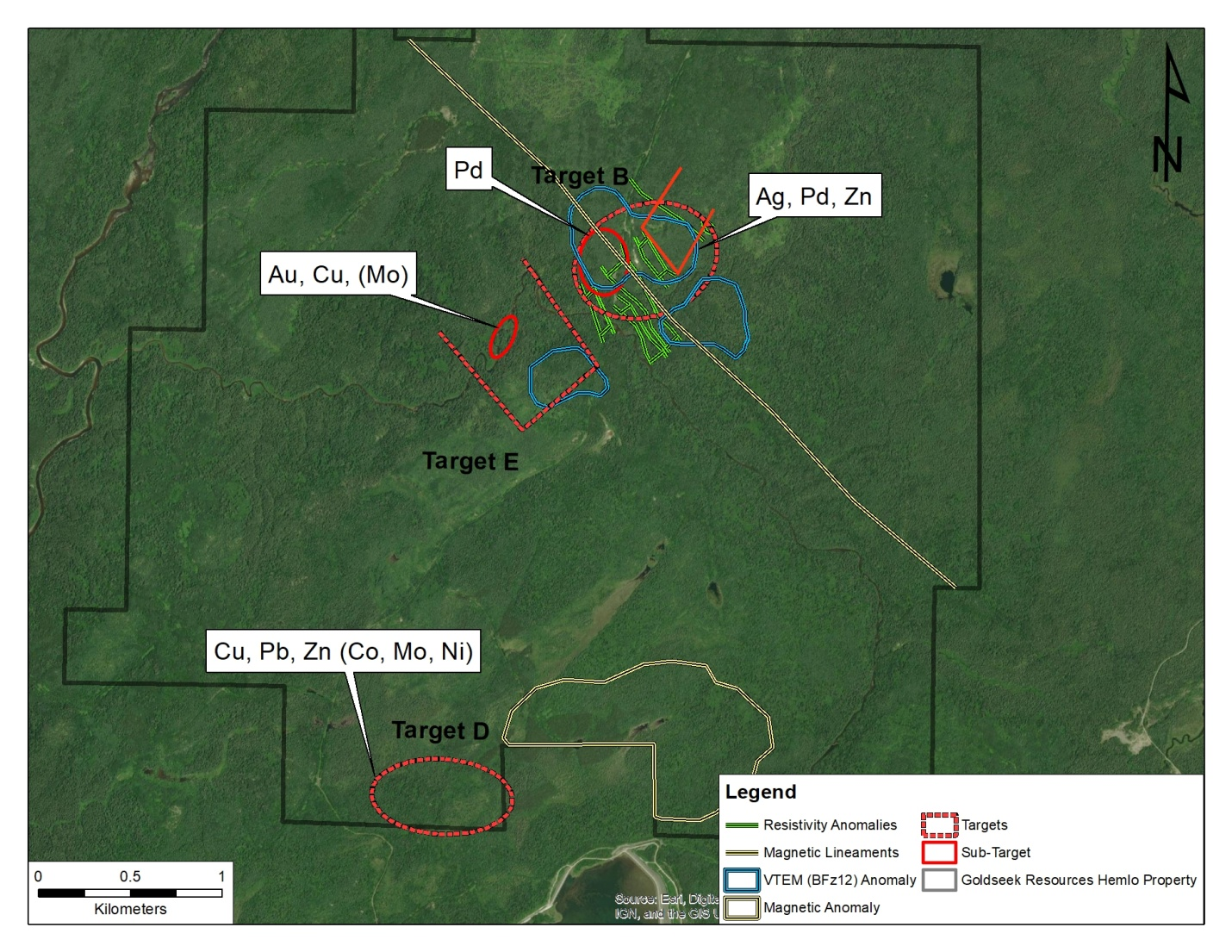Highlights:
- Numerous MMI soil anomalies adding two newly identified targets to the Project.
- Target D is a base metals anomaly with gold pathfinder elements on the Goldseek & Barrick Gold border which will be of priority for our follow-up Summer program.
April 27, 2021 – TheNewswire – London, Ontario – Abitibi Metals Corp. (CNSX:GSK.CN) (FSE:4KG) (OTC:GSKKF) (“Goldseek” or the “Company”) is pleased to announce the MMI soil survey results from its’ 2020 program at the Horizon (Hemlo) Property. The Company is excited to announce it has identified a 5th target (Target D) on the Property’s south border, which is shared with Barrick Gold’s Hemlo mining lease.
The MMI survey was completed on top of two magnetic anomalies located on Target B, and the newly identified Target D, respectively named the North and South grids (See news release dated July 31st 2020). The assessment of the data indicates that the Au-Cu-(Mo) and Pd areas on the North Grid and the Pb-Zn-Co-(Mo-Ni-Sb) anomaly on the South grid are well defined, sub-circular anomalies with sharp lateral boundaries and are prime targets using the MMI data. Both anomalies are open laterally and along strike, as shown in Figures 1 and 2 below.
Goldseek’s President & CEO Jon Deluce states, “We are encouraged with the results of our MMI survey and identifying a new target on the Goldseek / Barrick Gold border. The anomalies are still open, and therefore we will complete a survey this summer to better interpret the results and extend the known anomalies to plan a follow-up drill program.”
Figure 1. Targets on the Property and the MMI survey

Figure 2. Target Locations Over Total Magnetic Intensity
A follow-up survey will be completed this summer to define the extension of the MMI anomalies better since they are still open along strike and laterally. The general interpretation of MMI anomalies is that the source of the anomalies is expected to be located beneath the anomalies. The basic principle of MMI interpretation is that electrochemical cells are generated around most sulfide bodies as a result of their oxidation by groundwater and are often detectable at surface above the bodies. Oxidation of the sulfides at depth releases a rising column of reduced material. The reduced column shows at the surface as a narrow zone in the vadose zone, with sharp lateral boundaries (from Hamilton et al. 2002). Figure 3 shows the interpreted MMI assay results and targets
Figure 3: Interpreted MMI Assay Results
On the North Grid, three areas showed significant clustered anomalies. On the western corner of the grid, on Target E, a very strong and confined Gold-Copper anomaly is present, with minor molybdenum. A circular VTEM anomaly is present on the west side and extends to the middle of the target. Near the center is Target B which consists of a circular Palladium anomaly overlaying a strong VTEM and conductive anomalies. Just northeast is a Silver-Palladium-Zinc anomaly extending over a second VTEM Anomaly and strong conductive anomalies.
On the South Grid, there is a circular anomaly that contains Copper-Lead-Zinc-Cobalt with minor Molybdenum-Nickel. This anomaly is open towards north-east and could be related to an intrusion that is visible on the magnetic map (Figure 4).
Figure 4: Interpreted Geophysical Structures and Anomalies
Methodology
Statistical treatment of the MMI data has been conducted to identify anomalous areas on the survey grids. The MMI Response calculation is done by comparing the individual results for selected elements with the calculated value of the 25e centile. Usually, the values greater than 4x the 25e centile are kept, but since there was a lot of values below the detection values, the 4x the 25e centile was too noisy and 10x the 25e centile was kept for most elements (Au, Ag, Cu, Pb, Zn, Co, Mo, Ni, Sb). For palladium and platinum, the 3x and 4x the 25e centile value were kept.
Qualified Person
This press release was prepared by Steven Lauzier, VP Exploration for Quebec, PGO, and Pierre-Alexandre Pelletier, PGO, who are qualified persons as defined under National Instrument 43-101, and who reviewed and approved the geological information provided in this news release.
Source :
Hamilton, S.M., Cameron, E.M., McClenaghan, M.B. and Hall, G.E.M. 2002a. Deep penetrating geochemistry – Cross Lake final report; in Deep Penetrating Geochemistry Phase II; Cameron, E.M. (ed.), unpublished report and digital data release (CD) to CAMIRO, Eion Cameron Geochemical Inc., 73p.
About Abitibi Metals Corp.
Abitibi Metals Corp. is a Canadian exploration company with a portfolio of assets in Ontario and Quebec, Canada. By identifying six projects in world-class mining locations, Goldseek is poised to deliver shareholder value through rigorous exploration and development on these properties. Our mission is to find the next major discovery in the mining camps of Urban Barry, Quevillon, Val D’Or, and Detour Gold Trend in Quebec and Hemlo in Ontario.
ON BEHALF OF THE BOARD
Jonathon Deluce
Chief Executive Officer
Telephone: 226-271-5170
For more information, please contact:
Abitibi Metals Corp.
E-mail: goldseekresources@gmail.com
The reader is invited to visit Goldseek’s web site https://www.goldseekresources.com/
Neither the Canadian Securities Exchange nor its Regulation Services Provider accepts responsibility for the adequacy or accuracy of this release.
